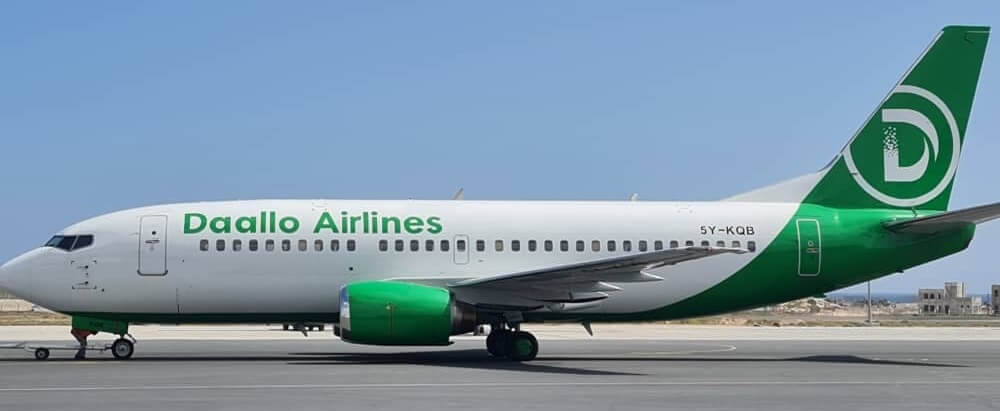How can Somaliland navigate the international system to secure recognition, protect its sovereignty, and advance its strategic interests? This question lies at the heart of Somaliland’s ongoing struggle in a world where legality, morality, and historical claims often give way to geopolitical calculations.
History demonstrates that recognition is rarely determined by law alone, but by a complex interplay of politics and power. Panama’s independence from Colombia in 1903 serves as a reminder of how smaller nations have sometimes leveraged international realities to secure acknowledgment. Somaliland today faces a similar challenge, as its strong legal and historical arguments must contend with the political interests of regional and global powers.
Somaliland’s case for sovereignty is firmly grounded in international law and historical precedent. A former British protectorate, the country gained independence on June 26, 1960, becoming a sovereign state recognized by other nations, including the United States and China, which sent formal messages of congratulations. This was a defining moment, marking Somaliland’s entry into the international community. Yet within just five days, Somaliland chose to enter a union with the former Italian colony of Somalia. Driven by the spirit of anti-colonial solidarity and the vision of Somali unity, Somalilanders sought to build a strong state that would bring together all Somalis under one flag.
The union, however, was never formalized under international law. The “Union of Somaliland and Somalia Law,” signed in Hargeisa on June 27, 1960, was never ratified by Somalia’s representatives. Instead, Somalia’s legislature approved only a non-binding resolution that supported unity “in principle.” Seven months later, Somalia attempted to retroactively validate the arrangement through a unilateral Act of Union in 1961, but this violated key principles of international law, including the prohibition of retroactivity and the requirement of bilateral consent.
From a legal perspective, Somaliland’s sovereignty was never extinguished. Its decision to withdraw from the union in 1991 was therefore not an act of secession but a resumption of its original independence.
This argument has been reinforced by the African Union. In 2005, an AU fact-finding mission concluded that Somaliland’s case is “unique, rooted in African political history, and does not open a Pandora’s box” of secessionist movements. The AU recognized that Somaliland’s claim is historically justified and legally sound, placing it in a category distinct from other separatist movements on the continent. The recognition of Somaliland , therefore, would not undermine African stability but rather affirm international law and historical justice.
Somaliland has also demonstrated, in practice, all the attributes of a functioning state. It has a permanent population, a defined territory, and a government that exercises effective authority. It has maintained stability in a turbulent region, held multiple democratic elections, established functioning institutions, collected taxes, defended its borders, and issued passports used around the world.
The question, then, is not whether Somaliland qualifies as a state. It does so unequivocally, both by law and by practice. The deeper question is why, after thirty-four years of self-rule, Somaliland remains unrecognized.
Despite its lack of formal recognition, Somaliland has engaged in relations with numerous countries, including the United Kingdom, Ethiopia, Djibouti, Kenya, the United Arab Emirates, and the United States. By every measure, Somaliland has operated as a sovereign state for over three decades.
The question, then, is not whether Somaliland qualifies as a state. It does so unequivocally, both by law and by practice. The deeper question is why, after thirty-four years of self-rule, Somaliland remains unrecognized. Why does a polity that has governed itself peacefully, maintained order, and fulfilled the obligations of statehood continue to be denied acknowledgment by the international community? This paradox is not only a challenge for Somalilanders but also for the broader international system, which often claims to uphold law and justice while bowing to the weight of geopolitics.
This is where Panama’s path to recognition provides a useful comparison. Panama’s independence from Colombia was not secured through legal arguments alone but through a shrewd reading of international realities and the strategic interests of global powers, particularly the United States. The lesson for Somaliland is clear: having a strong legal and historical case is not enough. Success depends on the ability to navigate the international system with pragmatism, to build alliances that align with the interests of influential states, and to present its sovereignty not only as a legal right but also as a strategic necessity for regional and global stability.
Both Panama and Somaliland emerged from failed unions shaped by colonial legacies, and both occupy strategically vital corridors of trade and security. Yet while Panama achieved rapid recognition, Somaliland has remained in diplomatic limbo, despite decades of stable governance and functioning institutions. Understanding these parallels and their differences offers a framework for Somaliland to chart a path toward recognition that is both pragmatic and opportunistic.
Panama’s journey after independence from Spain illustrates the fragility of ambitious unions. After 1821, Panama joined Gran Colombia, the state envisioned by Simón Bolívar to unite northern South America. However, political instability, regional rivalries, and diverging economic interests caused Gran Colombia to collapse within a decade, leaving Panama tied to Colombia against its will.
Similarly, Somaliland gained independence from Britain on June 26, 1960, recognized by over 30 countries, only to immediately enter what many legal experts consider an illegal union with former Italian Somaliland to form the Somali Republic. The broader vision of a Greater Somalia encompassing neighboring Somali-inhabited regions ultimately failed, and Somaliland suffered repression and mass atrocities under successive Somali governments. Both cases demonstrate that lofty political ideals can collapse when confronted with local realities and entrenched interests.
The colonial legacies of Panama and Somaliland also reveal shared patterns. Panama’s strategic importance to Spain meant its governance prioritized empire over local sovereignty. Somaliland, under British rule, was administered for strategic purposes and remained distinct from Italian Somaliland. These legacies left both states with artificial unions that were neither culturally cohesive nor legally sustainable. Somaliland’s current situation, like Panama’s post-Gran Colombia status, reflects the enduring consequences of these imposed political structures.
Panama’s path to recognition highlights the importance of transactional diplomacy in securing recognition. The isthmus of Panama was not only geographically strategic but also economically vital, offering the most direct passage between the Atlantic and Pacific Oceans. By aligning its independence movement with U.S. ambitions to build a canal, Panama was able to secure Washington’s decisive support for statehood.
Just as Panama leveraged its isthmus, Somaliland can use its coastline and ports as diplomatic assets, making a compelling case to international partners that its recognition is not only legally justified but strategically advantageous.
Recognition was not granted because Panama had the strongest legal claim, but because its recognition served the strategic and commercial interests of a major power. Somaliland finds itself in a similar position. Situated along one of the world’s most important maritime chokepoints, at the entrance to the Red Sea and the Gulf of Aden, Somaliland’s geography offers immense value in terms of global trade, energy security, and counterterrorism. Just as Panama leveraged its isthmus, Somaliland can use its coastline and ports as diplomatic assets, making a compelling case to international partners that its recognition is not only legally justified but strategically advantageous.
Just as Panama controlled the isthmus connecting the Atlantic and Pacific, a corridor essential for global trade and military mobility, Somaliland commands the Gulf of Aden, Bab el-Mandeb Strait, and Berbera port. These chokepoints are critical for maritime trade, regional security, counterterrorism, and rapid deployment for international partners. By demonstrating tangible strategic value, Somaliland can enhance its appeal to global powers and make a compelling argument for recognition.
Legally, Somaliland’s case is robust. It was a recognized sovereign state before the illegal union with Somalia. Functioning democratic institutions, stability, and respect for rule of law further bolster Somaliland’s claim. Yet, as history shows, legal strength alone is insufficient; recognition is largely political, determined by strategic interests and calculations of key actors.
To navigate these realities, Somaliland should consider transactional diplomacy that balances sovereignty with strategic engagement. This could involve operational cooperation at Berbera port, time-bound or reviewable military access for partner nations, and infrastructure partnerships that integrate Somaliland into global trade networks. While such arrangements may involve short-term concessions, they are not betrayals of sovereignty but pragmatic steps toward long-term recognition and security.
At the same time, Somaliland must avoid overreliance on any single external partner and instead pursue a multi-track foreign policy. An African institutional track through the African Union, a gradual European track emphasizing bilateral partnerships and development cooperation, and multi-partner arrangements with key states can all complement strategic engagement with actors such as the United States and the United Arab Emirates.
By diversifying its approach, Somaliland can strengthen its negotiating position, mitigate risks, and ensure that its long-term interests are not tied exclusively to the shifting calculations of any single actor. History demonstrates that geopolitics is fluid, and states that depend on one channel alone risk seeing their national interests undermined when external priorities change.
A clear example of this vulnerability can be found in the Memorandum of Understanding (MoU) signed by former president Muse Bihi with Ethiopia. Although the agreement was, in principle, a transactional deal with potentially historic implications, it faltered because Somaliland concentrated too heavily on one relationship, neglecting to cultivate alternative tracks.
By putting all of its eggs in one basket, Somaliland exposed itself to political setbacks that have so far prevented the agreement from materializing. This experience underscores the importance of pursuing a strategy that is both bold and meticulous, daring enough to seize opportunities, yet cautious enough to hedge against the unpredictability of regional and global politics.
By building bridges and cultivating long-term partnerships, Somaliland can gradually consolidate support, elevate its diplomatic profile, and reduce its vulnerability to the fluctuations of global geopolitics.
Therefore, a truly effective foreign policy for Somaliland must be flexible and multi-directional. It should target engagement not only with Western powers and Gulf states but also with African states that historically sympathized with Somaliland’s cause, such as South Africa and Ghana. Building durable partnerships across the African continent would not only strengthen Somaliland’s case within the African Union but also expand its network of allies beyond its immediate neighborhood.
By building bridges and cultivating long-term partnerships, Somaliland can gradually consolidate support, elevate its diplomatic profile, and reduce its vulnerability to the fluctuations of global geopolitics. Somaliland can strengthen its negotiating position and mitigate risks.
The path forward requires balancing opportunity and caution. Transactional engagement, strategic partnerships, and leveraging legal and geographic strengths can secure recognition, attract investment, and enhance regional security. Ignoring strategic realities, by contrast, risks leaving Somaliland vulnerable to absorption or influence by hostile actors. By combining pragmatic diplomacy with its existing legal and institutional strengths, Somaliland can gradually secure recognition, protect its sovereignty, and assert itself as a reliable and indispensable partner in the Horn of Africa.
For Somaliland, then, the challenge is not whether to engage in transactional diplomacy, but how to do so wisely, on terms that protect its sovereignty while attracting powerful allies. Pragmatic concessions made today can serve as investments in a secure and recognized tomorrow. The task of its leadership is to strike the balance: safeguarding sovereignty while leveraging geography and legality to turn Somaliland into an indispensable regional partner. Recognition may not come easily, but with foresight, flexibility, pragmatism and resilience, it is within reach.
Ibrahim Mohamed







